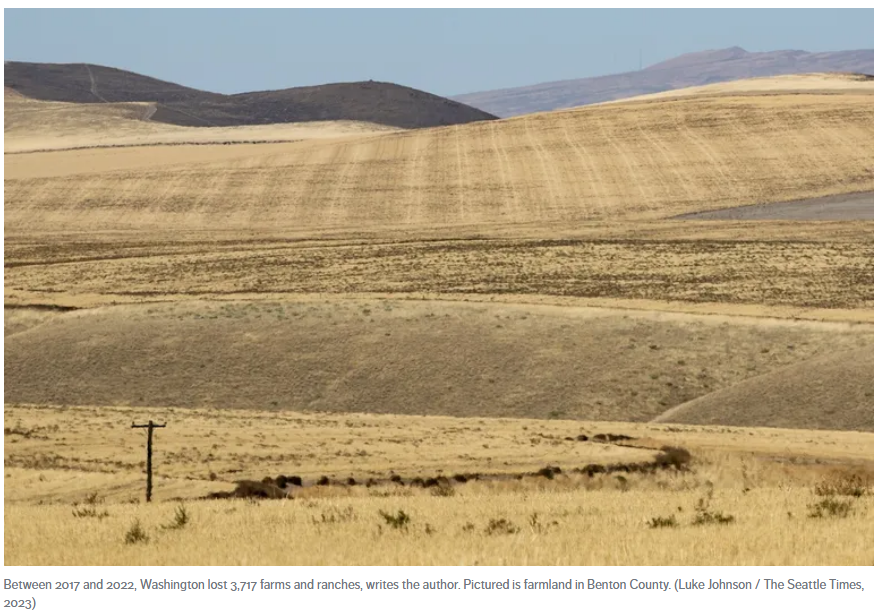Can Our Convergence Support Farms and Farmers?
A friend of mine sent me this….
Between 2017 and 2022, our state lost 3,717 farms and ranches. It also lost more than 102,000 food-producing acres. To put these numbers in perspective, Washington lost a total of 3,456 farms in the previous decade.
A panel of farmers at your 2024 convergence might just be the ticket to bring this crisis to our attention, and to deepen our understanding of the importance of farmers in our communities and bioregions.
These folks know. We don’t. They are also being eliminated in Europe to “reduce carbon” in the name of climate change. Perhaps we can stand in solidarity with them, create an alliance and help educate in regenerative farming. Read original article here.
Fourteen farms a week vanished from Washington state every week during the last five years. The U.S. Department of Agriculture recently released data from the U.S. Census of Agriculture and the numbers are shocking.
Between 2017 and 2022, our state lost 3,717 farms and ranches. It also lost more than 102,000 food-producing acres. To put these numbers in perspective, Washington lost a total of 3,456 farms in the previous decade.
We all know that correlation does not equal causation. Yet increases in operating costs and the enactment of hostile state and federal agricultural policy certainly suggest causation.
For example, 2022 was the first year agricultural overtime pay was implemented in Washington state.
In just a year’s time, agricultural employers saw their labor costs increase nearly 10% per employee by adding just five hours of overtime pay a week. An increase of $107.73 per employee, applied to the 164,000 farmworkers in our state, represents an increase of $17.67 million in overtime wages a week industry wide.
Farms and ranches are often misunderstood in discussions about labor, with the prevailing belief being that increased costs can simply be passed on to the consumer. However, farms and ranches negotiate set prices often before their operating prices are incurred. The overtime law also reinforced the mistaken but persistent belief that farms and ranches are rife with poor treatment of people who work hard, often far from their homes and native languages.
Similarly, in recent years, debates around riparian buffers have spotlighted an urban prejudice against agriculture in environmental stewardship. The dominant urban presumption seems to be those least connected to land care the most, while farmers and ranchers have an exploitative relationship with it.
Like other industries, our state’s farms and ranches have evolved. The perception of them should evolve too. The focus on good working relationships, living wages, environmental stewardship and care for the land, water, soil and native species is an intrinsic part of agricultural life. Without well-paid employees or healthy land and clean water, farms and ranches are stripped of yet another part of their means of survival.
As our farms disappear, so, too, does our access to food grown locally. Gone will be the opportunities for low-income families to shop for local produce at a fruit stand or farmers market stall. Gone will be the chance for individuals to find meat that is grass-fed from a rancher they have met.
Taking away direct access to locally produced food takes away access to true food equity — ensuring that everyone has access to food. When local food producers are forced to focus on their survival, charitable efforts are often among the first items to be sacrificed. Donations of fresh produce to food banks are often abandoned in favor of monetizing as much product as possible.
While the disappearance of 3,717 farms in five years is deeply concerning to the agricultural community in our state, it should alarm every Washingtonian.
William Jennings Bryan wrote, “Burn down your cities and leave our farms, and your cities will spring up again as if by magic; but destroy our farms and the grass will grow in the streets of every city in the country.”
Maybe Bryan was wrong about the grass growing in our streets. Maybe mega-corporate farms and automated technologies can replace the American farmer and maybe consumers won’t mind having fewer choices and a lowered standard of freshness. But is that a future we want to promote?
The fates of the Washington farmer and the thousands of families that rely on them for work are largely in the hands of increasingly urban lawmakers and the people they serve. The only question that remains is whether they will seek a deeper understanding and accommodation of the unique challenges of farming, or will they end it as a way of life?
Pam Lewison is a fourth-generation farmer in Eastern Washington and the director of the center for Agriculture at the Washington Policy Center.
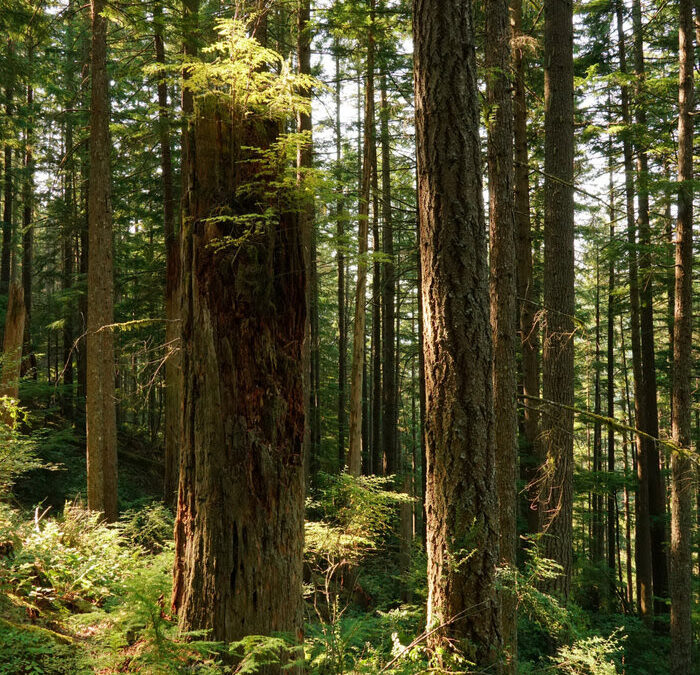
Firvana Timber Sale Re-paused
Good news for Green Mountain: Upthegrove Re-pauses Firvana Timber Sale! The Firvana timber sale would clearcut the entire Gold Creek Legacy Forest. We’re excited to share some hopeful news: Commissioner of Public Lands Dave Upthegrove has re-paused the Firvana timber...
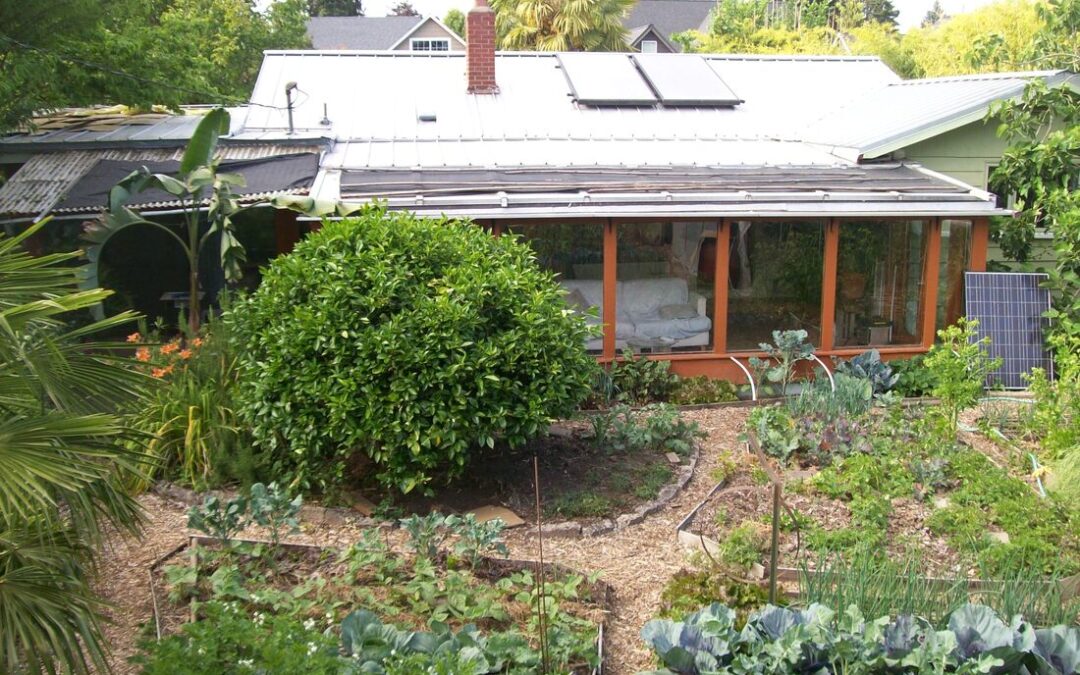
The Convergence of Preparedness, Resilience and Permaculture on Zoom
Zoom Tonight May 13 and Tour this Sat May 17 in Eugene Zoom link for tonight.Note, more site tours can be added. Organize a site tour in your neighborhood. A network can help promote it. May 13, Tuesday, 6:30 PM; Zoom Presentation and DiscussionThe...

Cascadia Day Celebrations! Saturday Night Potluck & Poetry Reading Seattle
Saturday, May 175:00 PM - 10:00 PMGeorgetown Steam PlantSeattle, WashingtonRegistrationWelcome! To join the event, please register here. About Event 🌄 Cascadia Day, Saturday Night CelebrationsFree and Open to the Public!Cascadia Day Celebrations! Potluck, Elders...

Chorus Frog Commons Potluck Celebration Sat 17th Shelton
Chorus Frog Commons Celebration New land trust devoted to long-term affordable housing. Join our friends at Chorus Frog Commons for a fun introduction! When : 3pm - 7pm or so This Saturday! May 17th in Shelton for : Potluck picnic, Live music and activities...

Learn How to Design Your Environment to be Productive and Regenerative May 17-18 Bellingham
Join us at Inspiration Farm in Bellingham to learn how to design your environment to be productive and regenerative. Learn about preserving natural resources and building a right relationship with your environment, an essential step to maintain the health of...

Global Earth Repair Update
Your Weekly Digest Global Earth Repair is always making updates to our website, here is a digest of the posts you may have missed from the last week. The Week's Updates in One Email A Land and Leadership Retreat with Didi Pershouse, as an Example of Bio-Regional...
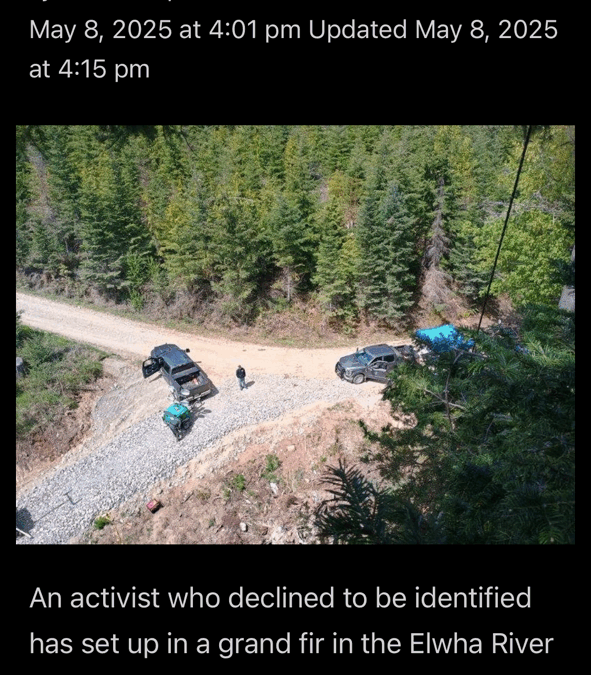
Tree Sitting to Save Old Trees
“ An activist who declined to be identified has set up in a grand fir in the Elwha River watershed to stop cutting of the forest in the state’s Parched timber sale. An activist has spent the last couple nights perched on a chilly, wind-rocked platform in a grand fir...
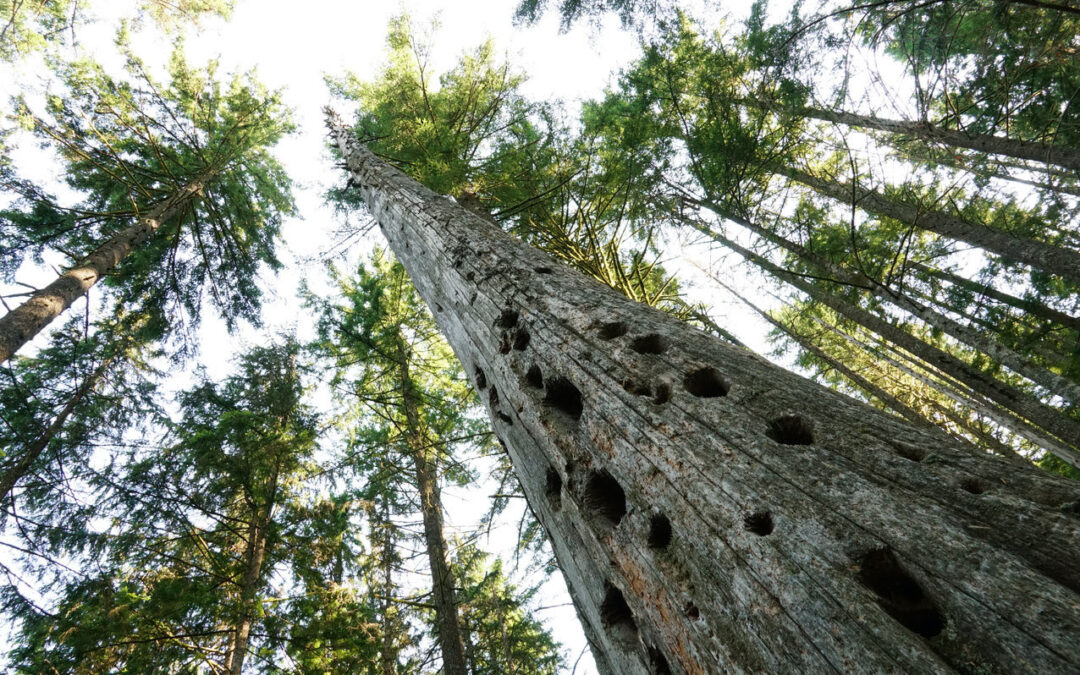
Comment by May 6 – DNR Wants to Clearcut 90-Year Old Legacy Forest in the Name of “Forest Health”
Please read this before submitting a comment. Joshua of Legacy Forest Defense Coalition did an amazing job giving this parcel due justice in a science only approach, his forte. The other is babble from the timber industry trying to control Upthegrove like they did...
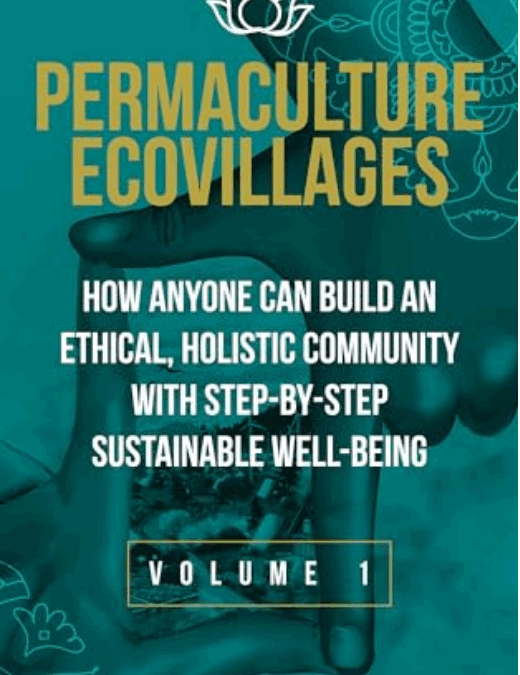
Appeal for Support from the Eco-Conscious Community
From Harmony Permaculture Network, a new book - please enjoy and review. Recently published the first volume of my 11-volume book and searched for potential readers who had expressed interest in the sustainable genre. Your website struck me as an appreciable "great...

Soil Food Web – Your Regenerative Journey Starts Here
My good friend Kathryn Alexander sent more Soil Food Web News: In case you missed it, we've had a LOT going on this April. Here are some of the highlights: 1. We've held a 4-part webinar series in support of Earth day (scroll down to read all about it and access the...

